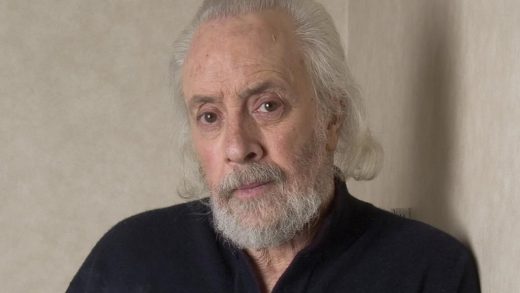Judges hear appeal from victim’s family in Adnan Syed case

ANNAPOLIS, Md. (AP) — The protracted legal odyssey of Adnan Syed, whose murder case rose to prominence through the hit podcast “Serial,” marked its latest development Thursday when a Maryland appeals court considered whether the victim’s family experienced improper treatment when a Baltimore court overturned Syed’s conviction last year, allowing his release after more than two decades behind bars.
The Appellate Court of Maryland will issue a ruling on the matter within 90 days.
Surviving relatives of Hae Min Lee, Syed’s ex-girlfriend and high school classmate who was strangled to death and found buried in a makeshift grave in 1999, contend their rights were violated because they didn’t receive enough notice about the court hearing that won Syed his freedom. They requested a redo of the September hearing — which would likely require reinstating Syed’s conviction — to allow Lee’s brother a meaningful opportunity to participate.
The answer to their request could have significant implications, both for Syed’s future and, more broadly, for the role of crime victims in the Maryland court system.
“We’re not on a campaign to have Adnan Syed put back in jail,” attorney David Sanford, who represents the Lee family, said on the courthouse steps following the hearing. “This is about respecting victims and their representatives.”
Sanford said the lower court should have to hold a more substantive hearing and better communicate its reasoning for overturning Syed’s conviction “so that the world can know the basis for releasing Adnan Syed.”
But granting crime victims and their attorneys the power to actively participate in such evidentiary hearings would vastly expand their influence, said Syed’s attorney, Erica Suter.
“Giving Appellant what he wants will not just result in the re-imprisonment of Mr. Syed for a crime he did not commit, it will wreak havoc on our criminal justice system,” she wrote in recent court papers.
But Lee’s family spent decades believing justice had been served, only to be treated as an afterthought when prosecutors decided their case was actually flawed from the beginning, according to their attorneys.
Lawyers for the Lee family said that a closed-door meeting between a Baltimore judge and local prosecutors in advance of the vacatur hearing amounted to a violation of open meetings standards.
Syed was unshackled inside the courtroom and descended the courthouse steps in downtown Baltimore, surrounded by loved ones and cheering supporters.
He was freed from prison after prosecutors said a monthslong review of the case found alternative suspects and unreliable evidence used at trial. Prosecutors had 30 days after his release to decide whether to retry him, but they ultimately dropped the charges, saying additional DNA testing had excluded him as a suspect.
Attorneys for Syed argue the Lee family’s appeal became moot after prosecutors dropped the charges. During oral arguments Thursday, a three-judge panel focused much of their questioning on that argument.
“There is no underlying conviction. There is no case,” Judge Stuart Berger said, asking the Lee family’s attorneys to better explain why the appeal shouldn’t be declared moot.
“It makes all the difference in the world if the case is moot,” he said later on. If the court dismisses the appeal on those grounds, it could still issue a ruling clarifying how victims should be treated in future cases.
The judges also raised questions about why the Baltimore State’s Attorney’s Office chose to drop charges against Syed eight days before their 30-day deadline — when an appeal from the Lee family was pending.
The family’s attorneys said the September hearing was too rushed, scheduled on Friday for the following Monday. Lee’s brother, Young Lee, wanted to participate in person, but he addressed the court over Zoom instead, unable to make travel plans from the West Coast on such short notice. That was after the judge denied his attorney’s request to postpone the hearing for a week so he could travel to Baltimore.
Maryland law says prosecutors must give victims “reasonable” notice about such hearings.
The judges expressed skepticism about whether it was reasonable for Young Lee to be given notice one business day before the hearing — and whether the hearing should have been postponed at his request.
“I feel betrayed,” he said via Zoom during the proceeding in September. “This is not a podcast for me. This is real life.”
He attended the Thursday oral arguments in person but didn’t participate or provide comment to reporters.
Syed also was present, along with his parents and brother. After the hearing, they exited the courthouse together, with Syed pushing his father’s wheelchair slowly through the front entrance.
“This court’s decision will neither bring back Hae Min Lee nor restore Adnan’s 23-and-a-half lost years,” Suter, his attorney, said outside the courthouse. “It’s time — it’s 23 years past time — to let Adnan Syed live his life as a free man.”
Credit: Judges hear appeal from victim’s family in Adnan Syed case


